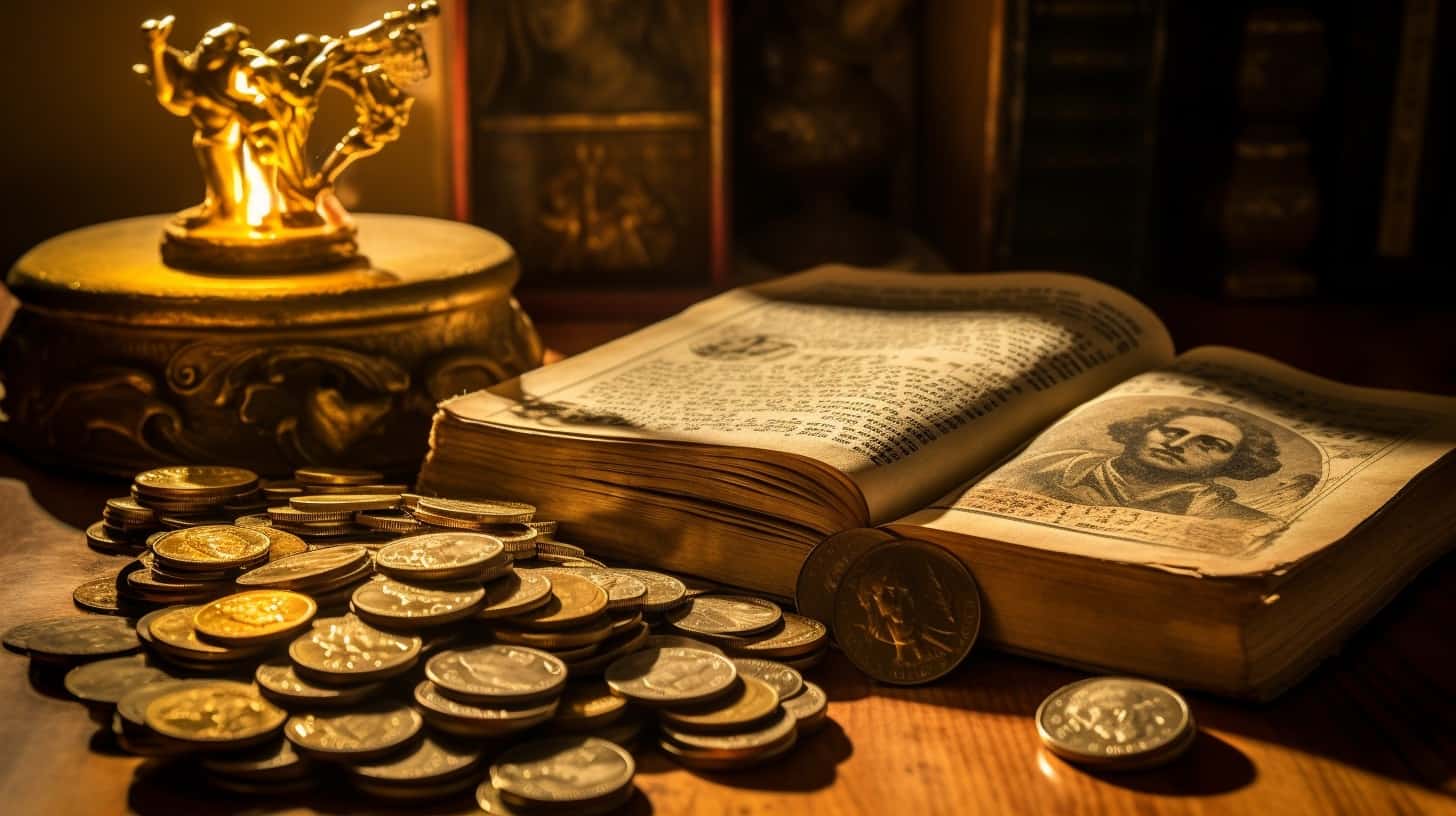What does Annuit Coeptis mean on the dollar bill? The Great Seal of the United States features many mysterious Latin phrases, symbols, and numbers that have inspired speculation and debate since the country’s founding. One of these mysterious Latin phrases is ‘Annuit Coeptis’, which appears right above the pyramid on the back of every $1 bill.
If you’re short on time, here’s a quick answer to your question: Annuit Coeptis translates to “He (God) favors our undertakings” or “He has favored our undertakings” and expresses hope that God will favor the new American republic.
In this comprehensive article, we’ll explore the history behind Annuit Coeptis, its meaning, the theories about why it was included on the Great Seal and dollar bill, and the significance it has had throughout American history.
The Origins of Annuit Coeptis on the Great Seal
Who Designed the Great Seal and Decided on Annuit Coeptis
The Great Seal of the United States, which prominently features the Latin phrase “Annuit Coeptis,” was designed by a committee appointed by the Continental Congress in 1776. The committee consisted of Benjamin Franklin, John Adams, and Thomas Jefferson, among others.
These esteemed individuals were tasked with creating a seal that would symbolize the new nation and its aspirations. It was ultimately Charles Thomson, the Secretary of the Continental Congress, who made the final decision to include the phrase “Annuit Coeptis” on the Great Seal.
Meaning and Translation of the Latin Phrase
The Latin phrase “Annuit Coeptis” can be translated to mean “He (God) has favored our undertakings” or “He approves our undertakings.” The phrase is derived from a line in Virgil’s Aeneid, which reads, “Iuppiter omnipotent, audacibus annue coeptis” – meaning “All-powerful Jupiter, favor (my) daring undertakings.”
This phrase was chosen to represent the belief that the success of the United States was attributed to divine providence.
Why Annuit Coeptis was Chosen for the Great Seal and Dollar Bill
The inclusion of the phrase “Annuit Coeptis” on the Great Seal and subsequently on the dollar bill was intended to convey the idea that the United States was a nation blessed by a higher power. The founding fathers believed that their efforts to establish a new nation were guided and approved by God.
By incorporating this phrase into the symbolism of the Great Seal and the currency, they sought to emphasize the divine aspect of the nation’s founding.
It is worth noting that the use of Latin on the Great Seal and the dollar bill was common practice during the time of the founding fathers. Latin was seen as a language of prestige and authority, and its use added a sense of gravitas to official documents and symbols of the new nation.
Theories and Interpretations of Annuit Coeptis
A Reference to Providence and God’s Favor
One theory regarding the meaning of “Annuit Coeptis” on the dollar bill is that it is a reference to divine providence and God’s favor. The Latin phrase, which translates to “He has favored our undertakings,” suggests that the success of the United States and its endeavors is attributed to a higher power.
This interpretation aligns with the belief in a benevolent and guiding force that has played a role in shaping the nation’s history and achievements.
Connection to Novus Ordo Seclorum
Another interpretation of “Annuit Coeptis” is its connection to the Latin phrase “Novus Ordo Seclorum,” which can be found on the reverse side of the dollar bill. “Novus Ordo Seclorum” translates to “New Order of the Ages” and is often associated with the concept of a new era or a fresh beginning.
Some theorists suggest that “Annuit Coeptis” is meant to complement this idea, implying that the success and progress of the nation are supported by a divine power.
Freemasonry Theories
Some theories link “Annuit Coeptis” to Freemasonry, a secret society that has been associated with various conspiracy theories throughout history. Some believe that the Latin phrase on the dollar bill is a nod to the influence of Freemasons in the founding of the United States.
However, it is important to note that these theories lack concrete evidence and are largely speculative.
It is worth mentioning that the interpretations of “Annuit Coeptis” are not universally agreed upon, and different individuals may have their own theories and beliefs regarding its meaning. Ultimately, the true intention behind the inclusion of this phrase on the dollar bill remains a subject of interpretation and speculation.
Significance and Impact of Annuit Coeptis
Enduring Mystery and Speculation
The phrase “Annuit Coeptis” is one of the many intriguing symbols found on the back of the one-dollar bill. Translated from Latin, it means “He (God) has favored our undertakings.” Its presence on the dollar bill has sparked enduring mystery and speculation, with various theories surrounding its origin and meaning.
While some believe it represents a divine endorsement of America’s founding principles, others suggest it is a nod to Freemasonry or secret societies. Despite the theories, the exact reasoning behind the inclusion of “Annuit Coeptis” remains a subject of debate and intrigue.
Representing American Ideals and Values
Regardless of its origin and meaning, “Annuit Coeptis” holds significant symbolic value for the United States. It serves as a reminder of the nation’s deep-rooted belief in a higher power and the role of faith in its foundation.
The phrase suggests that American endeavors and undertakings are blessed by a divine force, reinforcing the idea of American exceptionalism and the belief in a providential destiny. It reflects the enduring ideals and values upon which the nation was built, emphasizing the importance of faith and spirituality in American society.
Used in Pop Culture and Fiction
The presence of “Annuit Coeptis” on the dollar bill has not gone unnoticed in popular culture and fiction. It has been referenced in numerous movies, books, and television shows, often adding an air of mystery and intrigue to the storylines.
From conspiracy theories to secret societies, the phrase has become synonymous with hidden agendas and clandestine operations in the realms of entertainment. Its inclusion in pop culture further perpetuates the enduring fascination with the mysterious symbols and messages embedded in the fabric of American society.
What Does Annuit Coeptis Mean On The Dollar Bill – Conclusion
Annuit Coeptis has inspired curiosity and debate for centuries with its ambiguous meaning. While we may never know exactly why the founders chose it for the Great Seal and dollar bill, it continues to represent the sense of divine providence and grand ideals that the new American republic was founded upon.
This short Latin phrase’s enduring mystique shows how even the smallest details within our national symbols speak to the bold experiment and lofty aspirations on which America was built.




